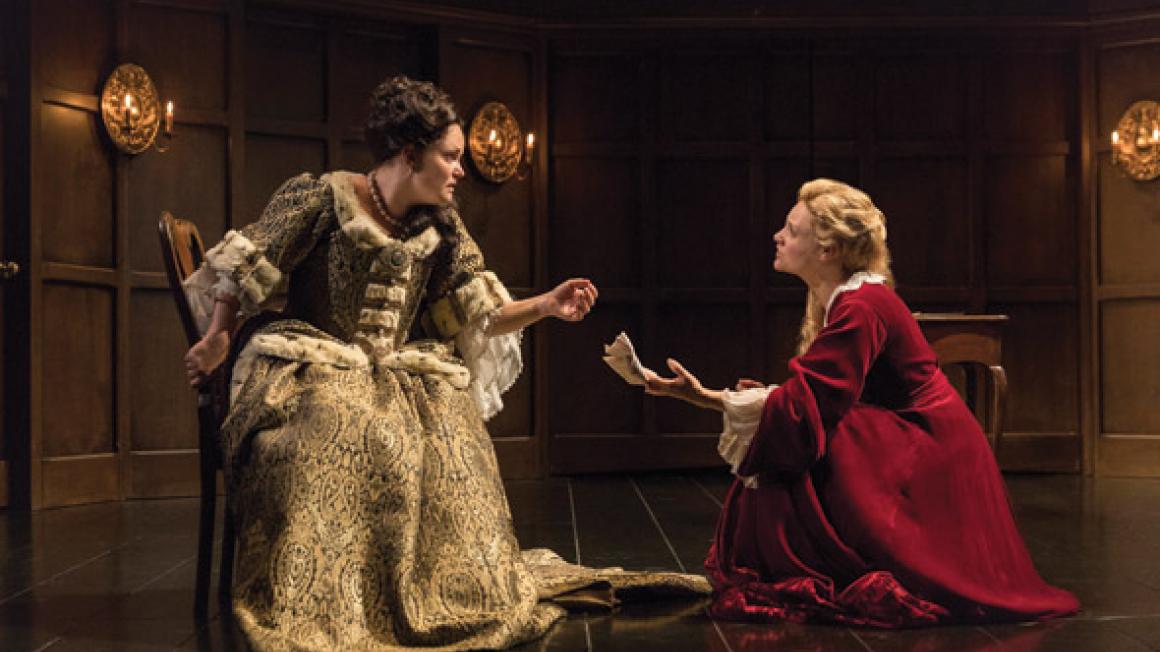Queen Anne

Anne – if Helen Edmundson’s patchy dramatic portrait and Emma Cunniffe’s compellingly unappealing portrayal is to be believed – is a charmless, graceless, needy lump with a reedy voice and legs plagued by purulent wounds and elephantine with gout. She limps heavily, clutching her painful body. But she loves her silly husband, Danish Prince George, and she seldom complains. Even though she has much to moan about, for Anne is desperate to secure the Protestant succession to the throne. Sadly most of her 17 pregnancies ended in miscarriage or stillbirth; smallpox killed her two daughters and her only son died aged 11.
‘I’ll do it tonight for England,’ sings a merry periwigged actor dressed up as a naked pregnant Queen Anne in a cruelly sardonic sketch in a drinking den which begins the play. It deftly creates the atmosphere of the times, when scurrilous gossipy journalists were beginning to have fun slagging off toffs and politicians. And Anne’s relationship with Sarah Churchill, a childhood friend, is a rich source of scandal.
In sharp contrast with the frumpy monarch, Romola Garai’s Sarah is a glamorous Gainsborough beauty, confident, canny and dressed in seductive scarlet, gorgeously setting off her blonde ringlets. Besotted Anne is a pushover, asking for little more than a kiss and a cuddle and the occasional sleepover and rewarding Sarah with the construction of Blenheim Palace and making her the chatelaine.
Not content with merely advising the Queen on which necklace best suits her dress, Sarah is determined to steer Tory Anne into the arms of the Whigs, to boost both her own advancement and the military fortunes of her dashing soldier husband, the Duke of Marlborough, who won the battle of Blenheim.
But gradually Sarah’s attentions cool and the Queen’s pockmarked but astute poor relation, Abigail Masham, initially her chambermaid, is promoted to political and personal confidante. In one of the best scenes, Sarah, like a jealous, spurned lover, attacks the Queen, who stands her ground. It marks the birth of this unlikely figure as the ‘mother to a nation’. Vengeful Sarah, an early kisser and teller, is behind the pamphlets referring to the Queen’s ‘rampant familiarity’, her attempt to suggest that the country was being run by a couple of lesbians. Fascinating stuff, and Natalie Abrahami’s pacy production makes the most of the apposite mentions of Scottish devolution and the tensions with Europe, but I could have done with less history and more drama.
Until 30 September at the Theatre Royal Haymarket, London SW1: 020-7930 8800, www.trh.co.uk


